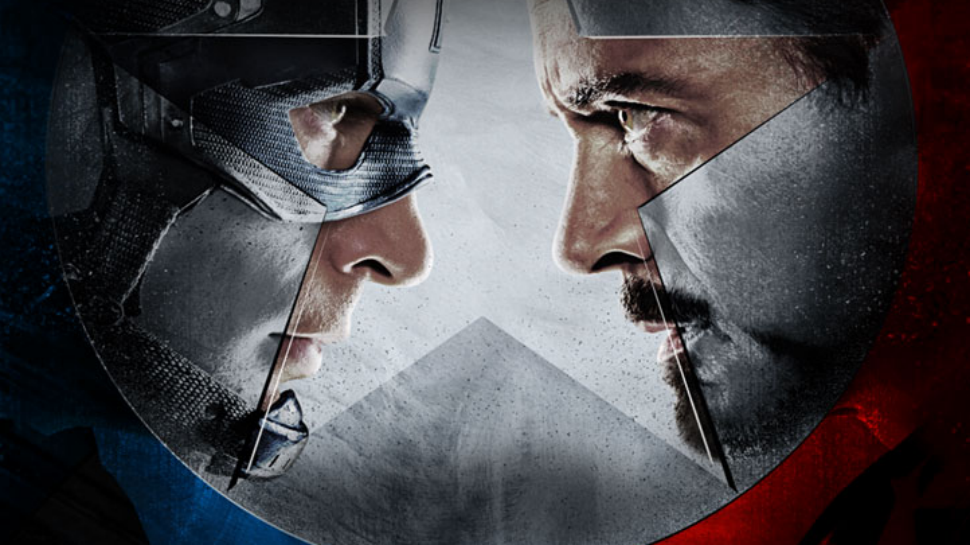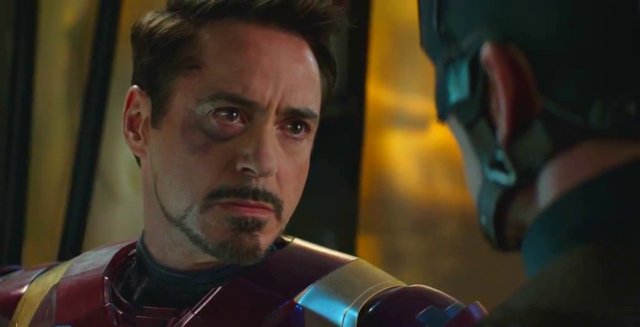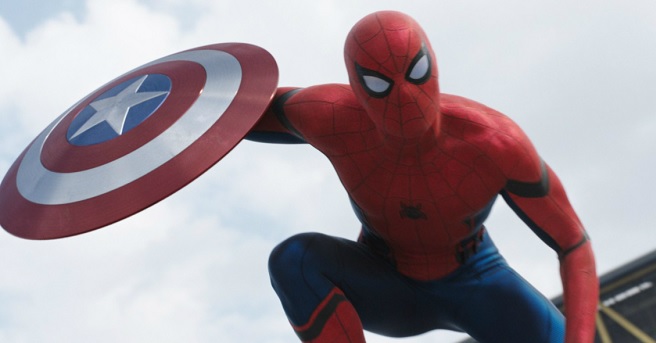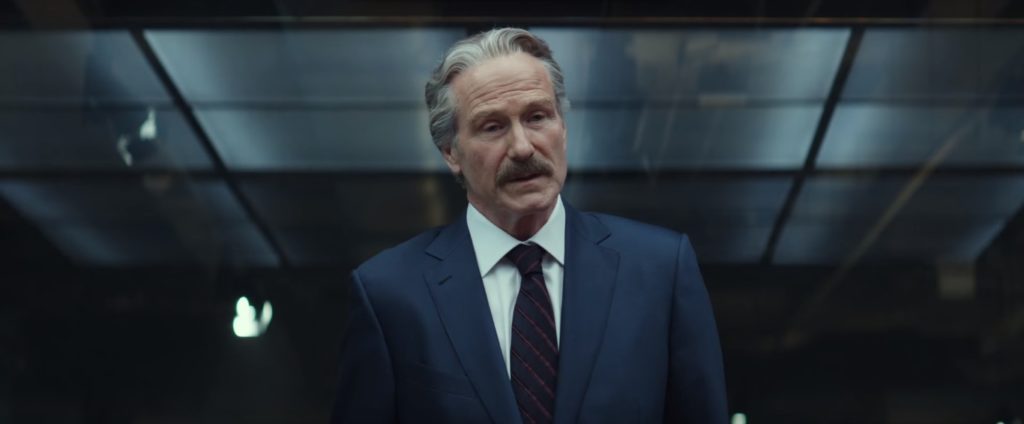At times sublime and other times frustrating, Captain America: Civil War is an imperfect film that still manages to soar above the competition
Because of the polemic nature of reviews these days, let it be known upfront that Captain America: Civil War is a stunning, ambitious film well worth your time and money.
Now that you know that this is a positive review, let’s talk about the areas in which the film fails.
First and foremost, Civil War is a sequel to both 2014’s Captain America: The Winter Soldier as well as last year’s Avengers: Age of Ultron. Serving as a sequel two separate films is impressive, and in many ways, it works, however, it also becomes problematic to the point of endangering the quality of the overall story.
Not only is Civil War burdened with continuing the story line of its predecessors, it’s also tasked with adapting—albeit very, very loosely—the “Civil War” comic event, which while not a huge success in the comics world, was significant enough to be adapted in the first place.
The problem that weighs Civil War down is the fact that three different plots, although related, threaten to derail the film due to being too overstuffed to let any of them breathe on their own.
https://www.youtube.com/watch?v=Pq3QTXHpMqM
If we’re being fair, there is enough material here to cover two, maybe three films, however, since all roads lead to 2018’s Avengers: Infinity War Part 1 (soon to be renamed), time and extra films are not a luxury as Marvel Studios rushes to complete Phase 3 of their master film plan, or whatever you’d like to call it.
The overstuffed plot is the first of a couple major disappointments, but before we get to the second, let’s talk about why Civil War is a film experience unlike anything Marvel, or DC for that matter, attempted to date.
What separates Marvel Studios from the rest of the crowd is their attention to characterization that successfully converts heroes from their two-dimensional origins to fully fleshed out characters. If Batman v Superman wished to paint their heroes in the darkest shades of grey, Civil War goes to great lengths to impress upon viewers what it means to be a hero despite any burdens.
Piggybacking on their success from The Winter Soldier, directors Joe and Anthony Russo and screenwriters Christopher Markus and Stephen McFeely adroitly handle their representation of Captain America as a character, helped in no small part by Chris Evans’ comfortability with the role. This also is evident with Robert Downey, Jr. who, after playing Tony Stark five times before, seems to not only not be tired of the role, but manages to add yet another, surprising layer—one of weariness.
While Captain America is always about the mission, when we catch up to Stark, he is in many ways, a shade of his former self. Recalling his grand Stark Expo presentation in Iron Man 2, the presentation he gives to a group of MIT students in comparison is subdued and almost conciliatory in comparison.
Whether it’s his gaunt expression, or the Russo’s choice to repeatedly give close-ups that show the grey in Stark’s distinctively manicured beard, Downey portrays Stark with a weariness and sense of loss betraying a vulnerability we’re not used to seeing in the superhero genre.
In a brief scene with the always-great Alfre Woodard, as a mother of a man killed during the events of Age of Ultron, Downey deftly exposes the true toll being Iron Man takes on Tony Stark, while conveying the sense of guilt that he doesn’t have the opportunity to show in Age of Ultron. Being Iron Man aside, Stark is as much ultimately responsible for the events that led up to Civil War as Captain America is in a slightly different way, if not more.
Tony Stark created Ultron, and largely without remorse, under the guise of wanting to create a “safer” world, which in turn cost a number of lives in the exchange.
The Russos, along with Markus and McFeely, choose to eschew the way in which Age of Ultron writer/director Joss Whedon emphasized saving lives. While that choice is important to the plot and raison d’etre of Civil War, it feels more like the ungrateful nature of Batman v Superman than one would like.
That said, the fight is the thing, and everything about the road that leads to what is arguably the finest fight scene in superhero movies to date is grin-inducing. The Russos are more than comfortable with the action at this point, and everything from the way in which the action set pieces are staged, to how each of the heroes get their own moments to shine is exactly what one would hope from a Marvel extravaganza.
This would be a good time to pause everything and say two, well-deserved, long-awaited words:
Spider-Man.
What Tom Holland does with his extended cameo as Peter Parker/Spider-Man is far and away the best portrayal we’ve had of the webslinger yet. While Tobey Maguire did a solid job of capturing Peter Parker the lovable loser, and Andrew Garfield brought a sense of joy to the role despite two bad films, Holland, for the first time, gives us a Spider-Man we know and love.
More importantly, Holland succeeds where both of his predecessors failed: He showed how Spider-Man’s rapid fire quips and cracks were his way of compensating for his fear. When we meet Parker, he’s only been Spider-Man for six months, and for the first time in any film, he confides that his powers still scare him a little.
If that level of characterization carries over to next year’s Spider-Man: Homecoming, we are in for a different, and more interesting wall-crawler.
By the time we get to the climactic airport battle, the amount of action leading up to it may give a sense of exhaustion, but as soon as the heroes run towards one another evoking memories of action figure battles fueled only by a sugar-rushed imagination, Civil War becomes a sublime experience that washes away any negative feelings brought on by the failures in plot and villain characterization.
Which brings us to the second major disappointment.
While Evans, Downey, Holland, Sebastian Stan and Chadwick Boseman (in his debut as T’Challa/Black Panther) bring their A game, along with Anthony Mackie, Scarlett Johansson (whose Black Widow clearly fares better under the Russo’s direction), Elizabeth Olsen, Paul Bettany, Don Cheadle, Paul Rudd and Jeremy Renner in lesser roles, the Achilles’ heel of Civil War is as it has been: the lack of compelling villains.
Daniel Bruhl (Rush) is wasted as Col. Heinrich Zemo, a character so far divorced from his Marvel roots as HYDRA heir Baron Zemo, that one wonders why he was given the name in the first place. As Col. Zemo, his murky motivation is little more than stock revenge villain, influencing events that, if given a little more time, would probably happen anyway.
Also wasted is the great Frank Grillo, who completes his transformation started in The Winter Soldier as the mercenary Crossbones, is nothing more than the deus ex machina that weakly sets into motion the Sokovia Accords, sparking the divide between the Avengers that serves as the point of the movie.
William Hurt is equally squandered as former Air Force General (now Secretary of State) Thunderbolt Ross, who based on his hatred of Bruce Banner/The Hulk, should be a fiery antagonist, but instead is reduced to a bureaucratic thorn in Tony Stark’s side. Instead of being a threat to the Avengers from inside the government, he’s more annoyed with their existence than anything else.
The very thing that makes Marvel heroes so great on screen is the exact thing that cripples its villains. Instead of letting them embrace evil, and enjoy twirling their mustache, they’re instead anchored by moral ambiguity in hopes that somehow they’ll feel more real, as if we don’t have examples of human evil.
Markus and McFeely spoke recently about the complaints concerning the one-dimensional nature of Marvel villains on screen. Their response wasn’t the most reassuring:
…The early phases were all origin stories. It tends to create a similar villain. When it is no longer an origin story, I think you might have a little bit more freedom to create different villains. I’m sensitive to the problem. I get it. But it wasn’t the Robert Redford story, it was CAPTAIN AMERICA: WINTER SOLDIER. It wasn’t the Red Skull’s journey, it was the journey of one guy going from ninety pound weakling to American hero and then going into the ice. So in a 120-minute movie it is difficult, and Thanos will possibly change that, but you want time spent.
Someone needs to pull Markus and McFeely aside and show them a copy of Die Hard. In one film, writers Steven E. de Souza and Jeb Stuart were able to create both a compelling hero and villain in the span of 120 minutes.
Granted, with so much packed into Civil War, the margin for error is razor thin, but no matter how full a plot is, there is always room for solid characterization, not neutered “villains” who are all the same shade of vengeful victim.
Even if MCU films don’t closely follow the stories and characters which appear in the comics, Baron Zemo has a history, and could be a compelling enough villain, but instead they use same practice of old names/new characters which so miserably failed with the Abomination in The Incredible Hulk, Whiplash in Iron Man 2 and Malekith in Thor: The Dark World.
Even HYDRA gets a better deal in ABC’s Agents of SHIELD than they do in the films, and if anything could’ve been changed, it would’ve been to allow Zemo to be a true antagonist on the television show than be given such short shrift in such a pointless manor here.
Despite these not-so-minor quibbles, Civil War is still a rousing success. While The Winter Soldier is a better film, largely because it’s allowed to follow one story line to completion, Civil War is a more-than-worthy follow up that ends on the sort of emotional cliffhanger, showing above all its flaws, above all else, that Marvel Studios is the true king of the hill when it comes to the superhero genre.
Hashim R. Hathaway (Uncle Shimbo) is the host of the Never Daunted Radio Network, and proud father to NeverDaunted.Net. You can reach him on Twitter @NeverDauntedNet




